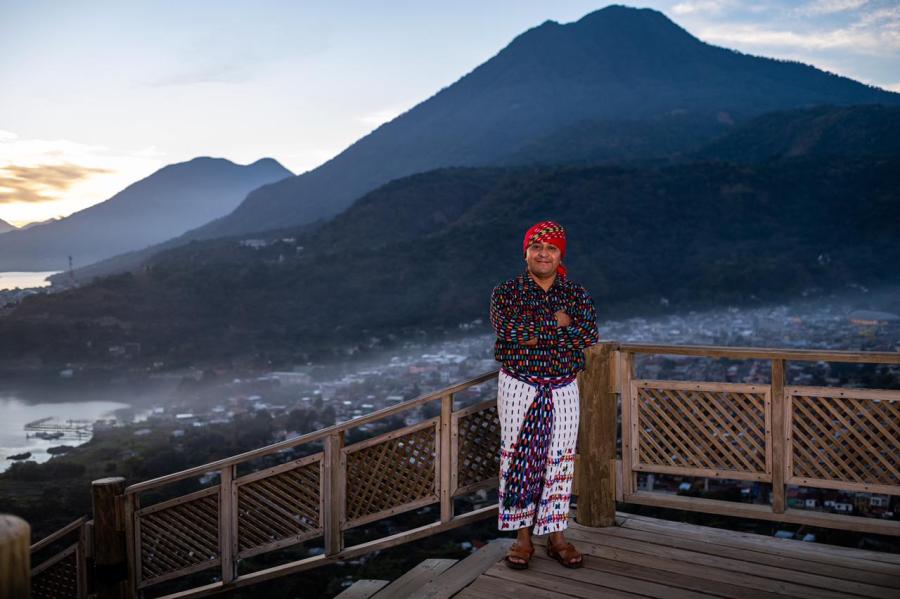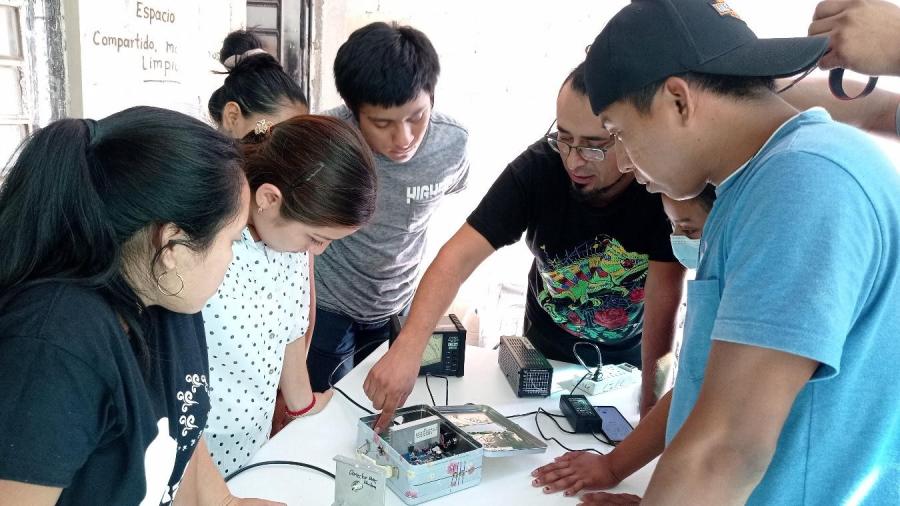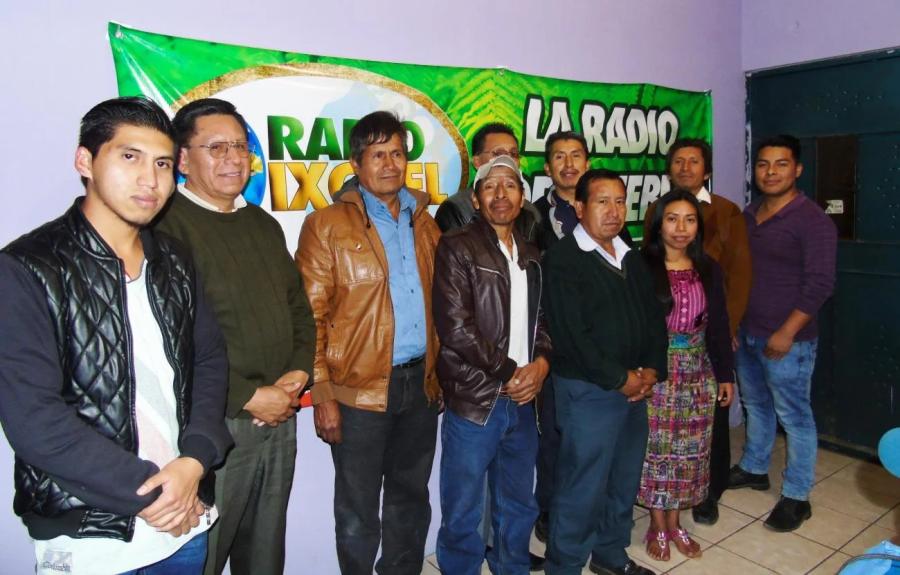In a futile attempt to staunch the flow of massive new waves of Central American refugees, the Rio Grande corridor of southern Texas and the Mexican-Guatemalan border zone of Chiapas have been placed under de facto martial law. As part of a generalized crackdown on Central American refugees, Mexican and US security forces have been augmented, while immigration authorities intermittently have tightened restrictions on asylum applications, work permits and travel. Simultaneously both countries have stepped up the rate of deportations.
Jails and immigration detention centers are crammed to over-capacity in Texas. Thousands of refugees are sleeping in parks, church shelters or in open fields. Local newspapers describe the near-panic that has gripped the area ("WAR REFUGEES FLOOD VALLEY"); right-wing editorials call for building additional jail space and implementing even more Draconian security measures.
As travel restrictions for Nicaraguans were loosened in mid-January, thousands migrated on buses to Miami, where city officials blamed Texas politicians for shifting this unmanageable burden onto the residents of Florida. Senator Bob Graham of Florida put it quite bluntly: "Those who don't deserve asylum should not be allowed to violate our borders." Meanwhile, the Bush Administration continues its program of economic destabilization directed toward the Sandinistas in Nicaragua at the same time offering the contras and their supporters asylum in the United States. Bush's misguided policies, critics say, are the major cause of the refugee problem.
In Mexico, migration and military authorities have reinforced a "security cordon" across the Guatemalan border, and are turning back or detaining every undocumented refugee that tries to cross the frontier. As noted by this reporter in several trips to the border crossings at Tecun Uman and La Mesilla, the only way for refugees to get into Mexico is to pay a bribe to migration officials or else to slip across an unguarded section of the border at night - an act that incurs the risk of being shot. Only those accompanied by bribe-paying coyotes or those who have migrant labor papers indicating that they will be working on one of Chiapas' notoriously exploitative agro-export plantations are allowed entrance.
A recent harrowing ride on a "Coyote Express" bus filled with terrified Salvadorans traveling through the Guatemalan-Mexican border area gave me a taste of the utterly horrible conditions that prevail. According to reports in the Guatemalan press and testimony given to Catholic Church relief workers in Chiapas, many if not most of the refugees who succeed in getting inside Mexico are then robbed or raped by these same coyotes, by criminal gangs operating along the border or by Mexican security forces.
Thousands of desperate campesinos continue to pour out of the Central American isthmus each week, joining the estimated 2 million who have already managed to escape. According to recent statistics, one out of every 15 Central Americans has fled the region. Meanwhile, additional thousands of undocumented Mexican workers continue to stream cross the US border, leaving behind an economic and political situation that each day more closely resembles life in Central America.
Canadian and US refugee support staff in Mexico City and Texas have noted a recent sharp rise in the numbers of Salvadorans, Guatemalans and Hondurans seeking asylum, and a continuous torrent from Nicaragua. Latest studies published by Americas Watch and Amnesty International not coincidentally emphasize a marked increase in political repression and human rights abuses in Guatemala, El Salvador and Honduras.
The majority of Nicaraguans I interviewed in Brownsville, Texas, on the other hand, were either former contras or were fleeing the economic devastation that has ravaged the country. Ironically enough only these former contra mercenaries or supporters (and family members) stand any real chance of being awarded political asylum status in the United States. Up until the present, approximately 75-85 percent of Nicaraguan asylum requests have been approved, whereas 96-99 percent of Guatemalan, El Salvadoran and Honduran requests are denied - according to recent statistics published in the New York Times and the Washington, DC, publication, Refugee Reports.
Except for a tiny, refurbished area near the International Bridge, Laredo, Texas, looks exactly like what it has become: part of the Third World. Its pockmarked streets and roadways are strewn with debris and broken-down cars. Shabbily dressed panhandlers stand with outstretched palms on nearly every street corner. Along the sidewalks in the downtown area, in front of storefronts offering gangas gigantes (bargain sales), a number of people are intently rummaging through garbage cans. At first I assume that these scavengers are searching for bottles and cans to recycle; that is, until I notice an elderly Hispanic couple sharing scraps of bread and semi-decomposed bananas from a filthy trash barrel.
A wide variety of heavily armed police patrol the border zone as well as all roadways leading out of the security corridor into the interior of Texas: DEA (Drug Enforcement Agency); FBI; INS (Immigration and Naturalization Service); US Border Patrol; Customs (US Treasury); county sheriffs; city police; Texas Highway Patrol; and even, recently, National Guard Reservists - all supposedly carrying out the "war on drugs" or projecting US national security from the influx of undocumented workers. Any automobile or pedestrian can be stopped within a 60-mile radius of the border, with or without "probable cause" - especially it persons display "Latino" physical characteristics.
According to Louis Menendez, a former assist ant federal public defender in Laredo, "There are so many divisions of law enforcement here that this is a town under martial law."
Anna Wallace, a local legal worker and Zapata County representative for Amnesty International, told me in a telephone interview that bodies are regularly seen floating down the Rio Grande, that several clandestine cemeteries have been discovered across the border in Mexico and that almost every Central American refugee is robbed or raped by coyotes in his or her terrifying transit through Mexico or during a forced sojourn in the Rio Grande corridor.
"In Guatemala," Wallace said, "there is approximately one soldier for every 200 civilians, while there's only one medical doctor for every 2,600 people. If you add up the respective numbers of law enforcement personnel and doctors here in Webb, Zapata, Hidalgo, Starr and Cameron counties, you'll end up with about the same proportions. The Reagan and Bush Administrations have turned the entire Rio Grande Valley into one huge detention center."
In early December Amnesty International sponsored two rock concerts in Laredo and Nuevo Laredo, featuring well-known musicians, in an attempt to call attention to the wretched conditions on both sides of the border.
Since May 1988, approximately 100,000 Central Americans have swam or floated across the Rio Grande near Harlingen and Brownsville, Texas. More than 30,000 have turned themselves in to immigration authorities in Harlingen, asking for political asylum. Thousands more have been arrested by the security forces that methodically patrol the area and interrogate any "suspects" they can find - on the streets, in the parks, in boarding houses and even in public libraries. Last year the United States deported almost libraries. Last year the United States deported almost 1.5 million Mexicans and Central Americans. A number of those sent back to Guatemala and El Salvador were promptly murdered by death squads or military units, according to church and human rights organizations.
Those 6 million illegal aliens who have somehow managed to penetrate into the interior of the United States have seen everyday survival and job opportunities deteriorate, especially since the implementation of the Simpson-Rodino Law sanctions in May 1988. Employers now face heavy fines if they hire undocumented workers. In addition, "La Migra," the feared INS police, have been conducting raids in Latino neighborhoods throughout the United States, arresting and deporting thousands.
Some Central American detainees are as young as 14 years old. Border Patrol Agent Oscar Garza admitted to me that 25 to 30 Central American youngsters are locked up every week in Laredo. The only way they can get out of detention is by agreeing to be deported back to Central America. Some of these teenagers are so terrified of returning to El Salvador or Guatemala that they have held out for up to nine months before breaking down and agreeing to be deported. "Once an alien has been deported," Garza told me, "it is a felony to try to cross into the US again."
Garza refused to acknowledge that Nicaraguans are being given preferential treatment by INS officials, although he did admit that other Central Americans, fleeting from US client states like Guatemala and El Salvador, are rarely recognized as having "genuine political asylum qualifications." Critics charge that not only is the US Justice Department treating refugees from the various Central American countries differently - that is, discriminating blatantly against everyone except ex-contras and contra supporters - but its misguided policies are destroying the economy and social fabric of the southern Texas area. The Brownsville area has an unemployment rate of 20 percent, for example, while the country as a whole claims a rate of only 5 percent.
On New Year's Eve I visited a desolate and depressing encampment of 500 Central American refugees near the Brownsville International Airport. Under plastic and cardboard "tents" propped against scrub brush and mesquite trees, young families and single young men and women told me wistfully of how they would like to make a new life in the United States or Canada. One young man from Guatemala, Manuel, aged 19, asked me if it was true that Canada was more sympathetic to the plight of Guatemaltecos than the US immigration Service in Harlingen. I didn't know what to tell him, since Sheila Reed, a Canadian Central American refugee counselor in Mexico City, had just told me the week before that US and Canadian policies seemed to be growing almost indistinguishable.
In the Guatemala City newspaper, Prensa Libre, on January 15, read that Brownsville police had broken up the refugee encampment near the airport. According to Brownsville authorities, the refugees hadn't caused any disturbances, but they were "occupying private property." I remembered what Manuel told me, just as it was getting dark, when I asked him what it would take in order for him and others like him to return to Guatemala. "No se (I don't know)," he replied rather shyly. His Salvadoran friends standing next to him answered instead: "Paz, justice, trabajo, y tierra (Peace, justice, jobs, and land)."
Article copyright Cultural Survival, Inc.



